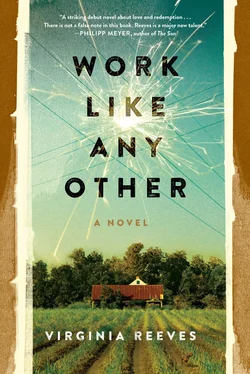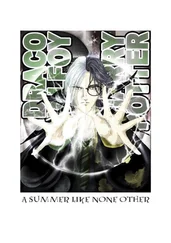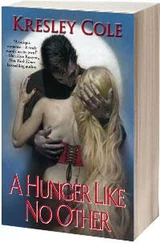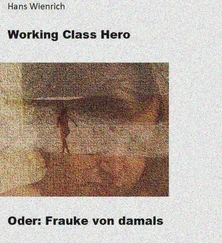I can see that this hasn’t been a successful training venture. The hunting of men aside, we’ve violated any number of Hartley’s rules.
Taylor reluctantly slides from his horse and pulls a couple more leads from his bag to hook up the others. “Might as well strap them up with that junk dog. See if they’ll fall in behind the horse.”
I look away as he climbs into the saddle.
He digs his heels into his horse’s flanks and clicks it forward. The mare starts into a quick walk, then a trot, then a gallop, and the dogs follow, pulling taut their leads. My wet clothes hang on me, leaden and demanding, and my lungs heave up coughs as soon as I start running. The pointed pain in my stomach returns, and the creek boils up in my mouth, silty and sharp. Again, the brush and branches swat at my face and arms, pricks that bead with blood. The dogs heave my hips forward, and my body follows of its own accord.
“Marie?” I say, my voice a lost thing amid the winded dogs and horse, the leads and chains.
“What’re you saying back there, Martin?” Taylor turns his head over his shoulder.
“Talking to the dogs.”
He chuckles. “I think you may just be cut out for this, now.”
I don’t know what it means if that is true.
THEday after the run to the possum oak, Taylor comes to the barn to announce that I am being reassigned to the dogs. “Martin’s one of the best workers I have in this place,” Bondurant says. “And he’s my main trainer on the new men. Find someone else to run your dogs.” Though I am a decent enough worker, I believe it’s personal dislike that’s fueling Bondurant’s fight.
“You don’t want to work the dogs, do you?” Bondurant asks once Taylor is gone.
“I have grown quite used to the barn, sir, but I don’t imagine it’s my choice.”
TAYLOR’Sback the next day with the warden himself.
“You’ll keep Martin through the rest of the summer months,” the warden says, Taylor a bucket of gloat at his side. “And then he’ll move over to the dogs. He can do more good for the prison over there than in the barn.”
“Yes, sir,” Bondurant replies.
I continue with my milking and mucking, delivering jars of fresh milk to Rash every Friday, though I know he’d get me my reading requests without the favors now. I exchange other jars for cigarettes — a new supplier was not difficult to find after Jennings — which I smoke in the barn or the yard, the guards turning their heads. This is new, and I appreciate it. Some moments, in the barn especially, this feels like a real life — smoke in my lungs, a summer day outside, stalls to clean. I could be a farmer going about his daily work, Marie and Gerald waiting for me at home.
I think often of that young version of Marie I saw in the woods. I know she was from my imagination, running loose of its tethers, the strain on my body clouding rational thought, but still I want to see her again. Some days I pass over meals and take too many shifts in the sun in an attempt to bring her back, to get my brain to that same place. Though she refused to share it, I know she must have something to say to me, some message from the real Marie.
Ed is still missing. The warden had to know he’d never return, but we still hear him talking about the hope of Ed’s capture.
I assume that Wilson is still in a coal mine, though I prefer to see him back on Marie’s land. Maybe this is what the young version of Marie can tell me — that Wilson has escaped and come home. I see him with his family around the table in the big house, dining with Marie and Gerald, back where he belongs. I see him working the farm, as he should, that land more his than anyone else’s. He’d worked so hard for himself and his family — Marie and her parents included — and he’d allowed a space for me in his life on that land when he had no reason to provide it. In return, I’d led him to the coal mines, feeding him all those electrical dreams, firing that interest, getting him caught with a dead body. I want my young Marie to give me word of Wilson. More than the real Marie or Gerald, Wilson’s the person it would do me best to know is all right.
The young Marie doesn’t visit me in the barn, though, and fall comes too fast. I say good-bye to Bondurant and the other men, good-bye to the milk and the cows, the smells and sounds. The loss feels similar to my departure from Lock 12 and Alabama Power, the shedding of a favored job for one I don’t want.
I keep seeing Ed in his small boat on that big ocean. Some nights he’s coming this way, those waves crashing through the oak grove to Kilby’s front doors. Other nights, I see him rowing about the streets of London. Everyone knows him by name, though he’s been gone from that city seventeen years. “Mason,” they shout. “You building boats now?”
I see Wilson laying down his pick. I see him shaking off the coal dust, see the whites of his eyes. They’re white still, not sallow like those of the men around him. He’s walking home now. Moa is waiting for him. She’ll have cooked a large meal. “Papa,” his children will say, “where’ve you been?”
But then I tell myself to stop. I have already dreamed these dreams. Their futility is contemptible, loose and wicked as the roaches in the mess.
I report to the dogs in the morning.
When Roscoe T Martin entered his first building on the grounds of Kilby Prison, he was ordered to strip down bare. The other men who’d arrived with him, making twelve in all, were given the same command. Upon losing their clothing, they put their hands instinctively to their genitals — cupping out of protection, covering out of dignity. They were marched to a tiled area and sprayed down with a hose of cold water, their hands forced away, every bit of them exposed. They were treated for all possible pests, then they were injected with a variety of needles.
“You’ll be healthier here than you’ve ever been, boys.”
Roscoe had always had good health, but he spent his first night in discomfort, waking every half hour to fits of dry coughs from the dust they’d sprinkled in his hair. He’d been issued a scratchy gray suit, and his bed was a thin mattress on a narrow, bottom bunk. Five other men were in the cell with him, and he hadn’t learned any of their names. Through the night, they took turns telling him to shut his goddamned mouth.
“Shove your goddamned face into your cot if you have to make that much noise.”
“Only thing I got going for me now is sleep, goddamn it.”
“That’s it. I’m gonna come down and smother it out of you myself.”
Roscoe didn’t respond to any of it. He coughed and he waited, a good part of him still expecting the admission of a mistake. George Haskin hadn’t been electrocuted by Roscoe’s lines, he’d simply died of a heart attack or some other malady with a quick onset. The jury had been swayed, the sentence suspended. He was home with Marie and Gerald and Wilson. They were working with Alabama Power to put in a meter for the power they were using. All was well.
He wouldn’t have to fight off his cellmates.
Morning was a subtle creeping of gray light, and a guard came right afterward.
“Eaton!” he called, and the man on the bunk over Roscoe heaved himself down to the floor. He was a short, thick man with muscle through his torso. The right half of his face looked as though it’d been boiled.
“You get used to the dust they throw at ya,” he said to Roscoe before heading to the cell door. “Once you been here awhile.” The skin of his right cheek didn’t move when he spoke, stretched and thick as leather. His voice didn’t match any of the ones Roscoe had heard through the night, and he saw the man’s words as the first decent thing the prison had offered him.
Читать дальше












